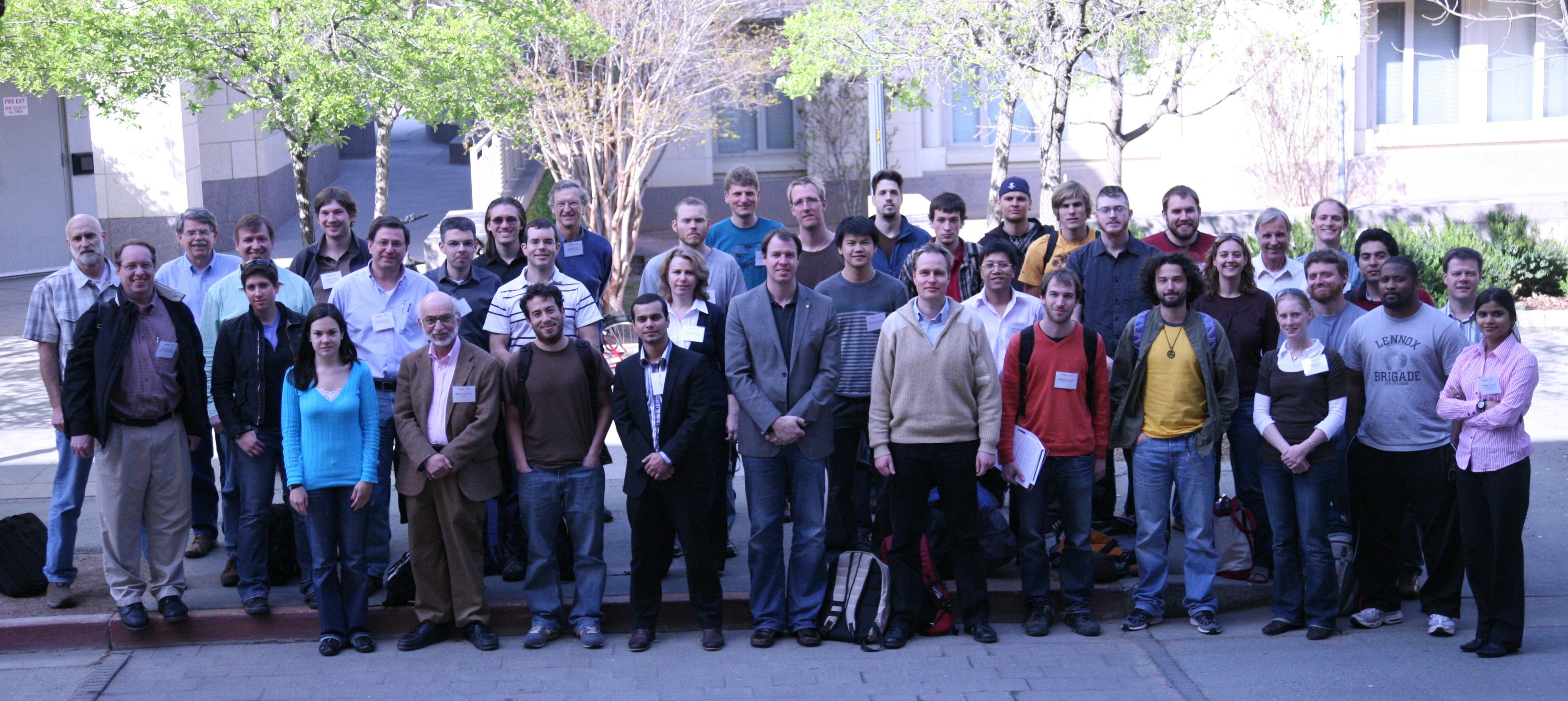|
Delegates from SMI-10 at Stanford University, California. |
A number of fields of research rely on capabilities for stopping, manipulating, and controlling small numbers of ions. These technologies have become key in rare-ion production and advanced nuclear physics instrumentation and are being driven forward by the research demands. Techniques for stopping and manipulating of ions used in nuclear physics are now being applied to next-generation experiments in particle physics.
This year, TRIUMF and Stanford University organized the 10th international workshop on Stopping and Manipulation of Ions (SMI) from March 21-24, 2010, at Stanford University, California. SMI-10 included a series of presentations and discussions related to these techniques and topics.
Over four days, SMI-10 covered many topics related to the development of new techniques, including the stopping of energetic ions in noble gases and the use of noble gases to manipulate ions and atoms, mostly in research involving rare nuclides. In addition, SMI-10 addressed topics of interest for the extraction and identification of ions produced in rare nuclear decays, such as would be desirable for ultra-low background double-beta decay experiments.
Since the last workshop in 2006 in Groningen, there have been many new developments that warranted the organization of this meeting such as advances in laser cooling, radio-frequency quadrupole structures, and cryogenic techniques. SMI-10 aimed at providing a status of the field as well as guidance for future developments. This workshop extended its participant-base from the rare-isotope beam community to now include the very rare event community from particle physics—specifically research studying neutrinoless double beta decay---which plans to use the same techniques.
Committee chairs included Peter Dendooven, KVI, Netherlands, Giorgio Gratta, Stanford University and Jens Dilling, TRIUMF/UBC. This international workshop attracted participants from Canada, China, Finland, Germany, Netherlands, Switzerland and USA. TRIUMF participants included graduate students Thomas Brunner, Stephan Ettenauer, and Vanessa Simon.
TRIUMF’s contributions were based on expert knowledge in the TITAN group, but moreover led to new interactions and collaborations with people from SNOLAB, Stanford University, and Argonne National Laboratory/ University of Chicago.
Co-chair Jens Dilling said, “The workshop was extremely fruitful and showed the versatility of the techniques, as well as the breadth of new developments”.
—Melissa M. Baluk, TRIUMF Communications Assistant

